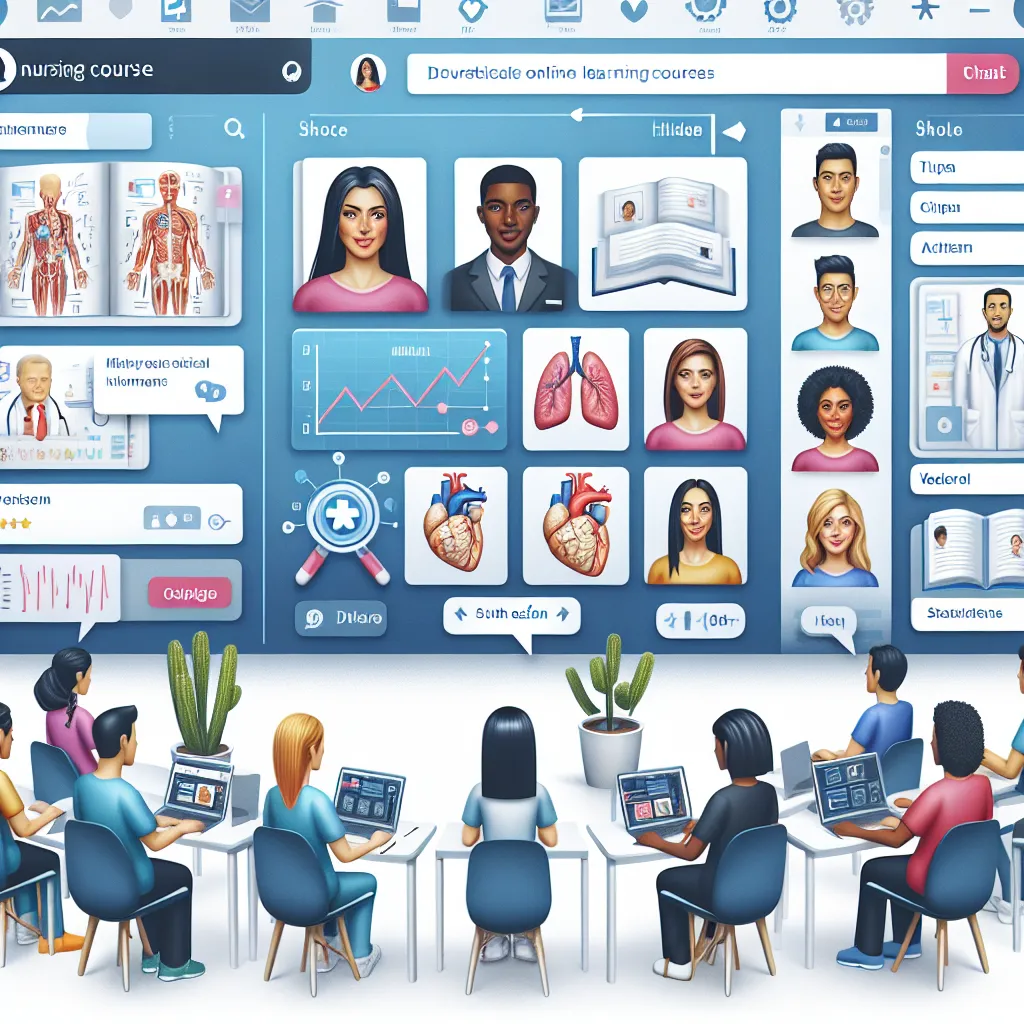Exploring the Benefits and Opportunities of Online Nursing Courses
In recent years, online education has gained significant popularity across various fields, including nursing. With advancements in technology and the increasing demand for flexible learning options, online nursing courses have become a viable and convenient choice for aspiring nurses and working professionals alike. This article aims to delve into the benefits and opportunities that online nursing courses offer, providing a comprehensive overview of this modern approach to nursing education.
Flexibility and Convenience
One of the most appealing aspects of online nursing courses is the flexibility they offer. Unlike traditional classroom-based programs, online courses enable students to study at their own pace, allowing for a better work-life balance. This flexibility is particularly beneficial for individuals who are already working as nurses or have other personal commitments.
Online nursing courses also eliminate the need for commuting to a physical campus, saving both time and money. Students can access course materials and lectures from anywhere with an internet connection, making education more accessible to those in remote areas or with limited mobility.
Diverse Learning Resources
Online nursing courses provide access to a wide range of learning resources that enhance the educational experience. Through virtual libraries, interactive modules, and multimedia materials, students can explore nursing concepts and skills in engaging and diverse ways.
Additionally, online courses often incorporate discussion boards and forums where students can interact with their peers and instructors. This virtual community fosters collaboration and knowledge sharing, allowing students to gain different perspectives and insights.
Cost-Effectiveness and Affordability
When compared to traditional in-person nursing programs, online courses tend to be more cost-effective and affordable. Tuition fees for online programs are often lower due to reduced overhead expenses associated with physical facilities. Moreover, students can save on transportation costs, housing, and other expenses related to attending an on-campus program.
Furthermore, online nursing courses eliminate the need to relocate or commute to a distant campus, making education accessible to a broader range of individuals who may not have the means to attend a traditional program.

Flexible Learning Environment
Online nursing courses provide a flexible learning environment that caters to various learning styles. Students can choose the time and place that suits them best, allowing for optimal concentration and engagement. Whether it's early mornings, late nights, or during breaks at work, online nursing courses accommodate individual preferences, promoting a personalized learning experience.
In addition, online courses often include self-paced modules, enabling students to review and revisit challenging topics as needed. This feature ensures a deeper understanding of the material and encourages mastery of essential nursing skills.
Global Networking and Collaboration
One significant advantage of online nursing courses is the opportunity for global networking and collaboration. As students from different geographical locations enroll in these courses, the virtual classroom becomes a melting pot of diverse perspectives and experiences. This international exposure enriches the learning experience and broadens students' understanding of nursing practices across various cultures and healthcare systems.
Furthermore, online nursing courses often provide opportunities for collaboration with professionals and experts from around the world. Through virtual conferences, webinars, and discussion platforms, students can engage with renowned nursing leaders, researchers, and practitioners, expanding their professional network and fostering lifelong connections.
Adapting to Technological Advancements
By enrolling in online nursing courses, students can develop essential technological skills that are increasingly necessary in the healthcare industry. As technology continues to advance, healthcare organizations are adopting electronic health records, telemedicine, and other digital tools. Nurses who are well-versed in these technologies will be better equipped to meet the evolving demands of the profession.
Online nursing courses often integrate virtual simulations and practice scenarios, allowing students to gain hands-on experience in a controlled and safe environment. This exposure to technology-enhanced learning prepares nurses to navigate real-life healthcare settings efficiently.
Considerations for Online Nursing Courses
While online nursing courses offer numerous benefits and opportunities, it is essential to consider a few factors before enrolling:
- Accreditation: Ensure that the online program you choose is accredited by recognized nursing accreditation bodies.
- Curriculum and Faculty: Research the curriculum and faculty members to ensure they meet your learning needs and academic standards.
- Practical Experience: Check if the program incorporates practical clinical experiences in partnership with healthcare facilities.
- Time Management: Online courses require self-discipline and effective time management skills. Assess if you are capable of managing your time efficiently.
Conclusion
Online nursing courses offer a flexible, accessible, and cost-effective alternative to traditional nursing education. With their diverse learning resources, global networking opportunities, and ability to adapt to technological advancements, online nursing courses have become an attractive option for aspiring nurses and healthcare professionals. By carefully considering the considerations mentioned above, individuals can make informed decisions and embark on a successful journey towards a rewarding nursing career.